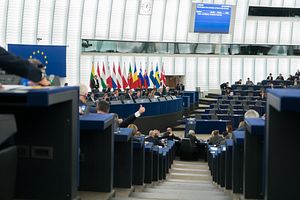During its plenary session in Strasbourg on November 15, the European Parliament passed new anti-dumping rules. This came as no surprise as the European Commission proposals for changes to anti-dumping and anti-subsidy regulations appeared almost a year earlier and were mutually agreed upon by the European Parliament and Council on October 3, 2017. As a next step, the Council will formally approve the new rules, which will enter into force by the time they will be published in the Official Journal of the EU. The European members’ primary target is to safeguard their producers from unfair trade practices with respect to the EU’s World Trade Organization (WTO) obligations.
According to the press release from the European Commission, the new legislation will introduce different ”trade defense instruments” in order to calculate dumping practices. In recent years, European industry has dealt with imported products being sold at prices below the cost of production (ie “dumped” prices), causing financial damage. The main modifications in the anti-dumping legislation framework are expected to improve transparency. Dumping is calculated by comparing the export price of the product in the EU with the domestic price in the country where it is produced. However, this method proved ineffective in pinpointing state interference, which distorts the European market. Especially in countries with regulated markets (RM), the authorities extensively control or subsidize exporting enterprises, directly affecting the prices of products. In these cases, new benchmarks for the costs and sale of products in countries with a similar economic development as the exporting country will be taken into consideration. The Commission will be in charge of preparing reports vis-a-vis each country’s market data. Moreover for the first time, the social and environmental standards in exported countries will be taken into account when deciding on anti-dumping measures.
EU representatives as well as the European Associations have welcomed the new trade-defense rules, which are seen as helping guarantee the free and fair function of the European market. Commissioner for Trade Cecilia Malmström declared that the new trade environment demands transparent mechanisms and tools that will effectively tackle dumping practices from third countries threatening EU’s industry. President Jean-Claude Juncker was more acidic during his statements, pointing out that European members cannot be naive free traders. The European Steel Association, which faced the broad negative effects of dumping practices, emphasized the benefits that the new mechanisms will provide to European businesses and jobs.
However, even if the EU tries to convince the world that the new legislation does not target any specific country, but will be implemented in a neutral way, there are indications of the opposite. Under section 15 of China’s accession protocol in WTO in 2001, WTO members were allowed to treat China as a non-market economy (NMO) regarding dumping calculating methodology and measures. The EU took advantage of section 15 based on the term ”analogue country methodology.” Τhe EU calculated the dumping price by comparing the exported prices of Chinese products with prices from a third ”surrogate analogue” market economy country. As of December 2016, this clause has expired, but the EU has refused to grant China Market Economy Status after robust resistance from the European Parliament. Until today, the recognition of China as a market economy has proven to be a tense subject between China and the EU, complicating their trade relations.
According to the new legislation, the EU will impose anti-dumping measures on third countries, even members of the WTO, based on the ”significant market distortions” that exist in these countries. Even if the anti-dumping regulation provides an extensive catalog of practices that distort the market and presents the criteria that the EU will take into consideration in order to determine market distortions, China seems extremely worried. China argues that through the term ”significant market distortions,” the EU actually aspires to prolong the ”analogue country” methodology and avoid granting China MES.
The EU seems set to toughen its policy against Chinese products. According to official statistics from the European Commission, by October 2016, definitive anti-dumping duties against more than 50 different Chinese products were in place. Moreover, in August 2017, the European Commission, after detailed investigation, imposed tariffs on Chinese steel products that were benefiting from unfair subsidies. Edwin Vermulst, a partner of the VVGB international law firm in Belgium, commented that it is obvious China is the main target of the anti-dumping regulation and added that he has some valid doubts as to whether the regulation will be in accordance with WTO Anti-Dumping Agreement. At the same time, China urged the EU to abide by its WTO commitments and abstain from policies that violate its obligations and encourage protectionist trends.
All in all, the implementation of the new fair trade mechanisms seems inevitable. However, the final version of the text has not been released yet. Before we can truly analyze the effects and reach conclusions, the anti-dumping legislation has to be applied in practice. Theoretical analysis of the legislation text will be meaningless and will rather undermine the trade relations between China and the EU. China should wait and abstain from policies that will impact mutual cooperation.
Magda Tsakalidou is a law graduate from Aristotle University of Thessaloniki and a EU-China relations researcher, focusing on investment law.

































